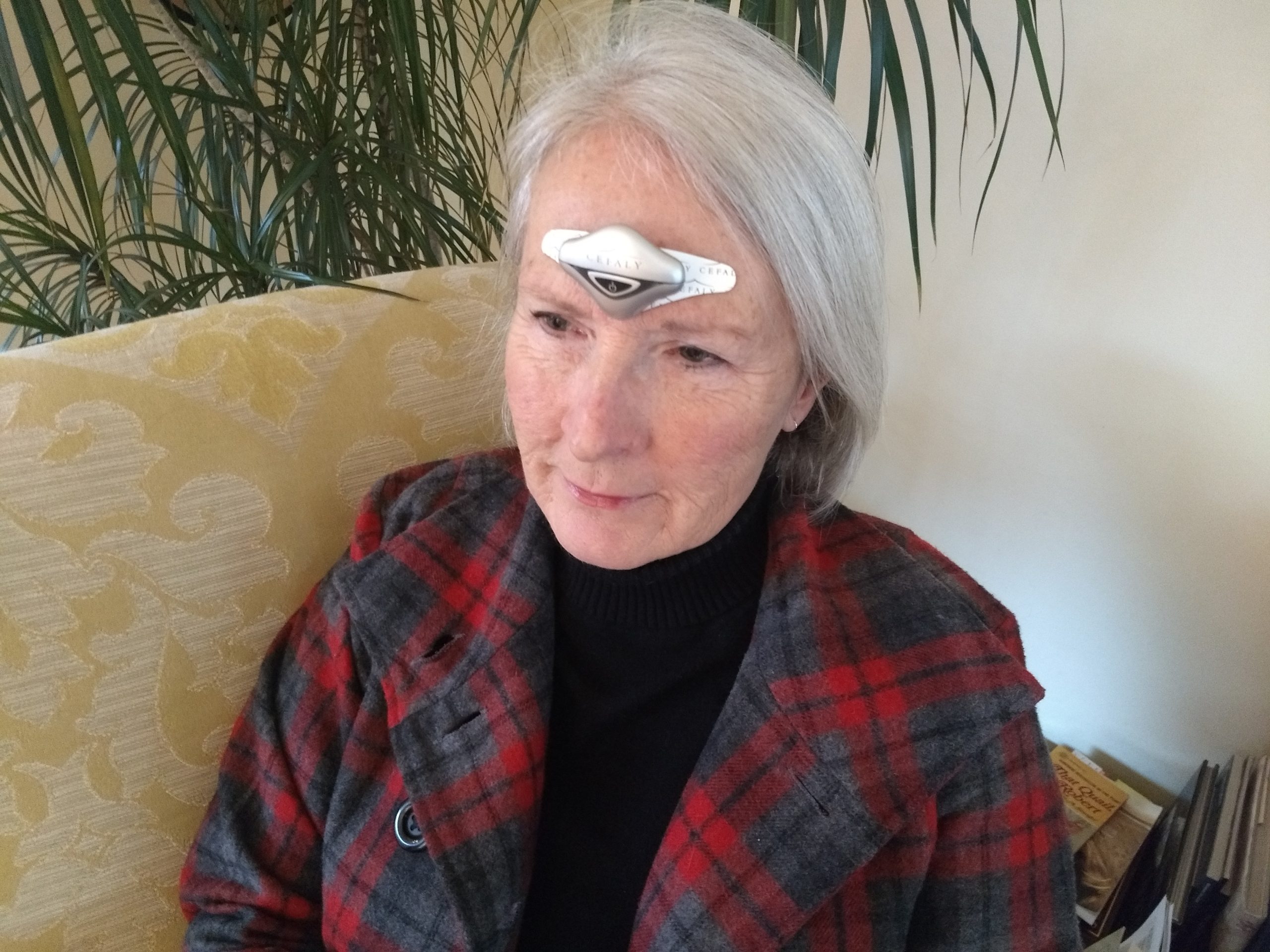- Work Getting in the Way of Self-Discovery
- Finding Your Sense of Self – Relationship
- Finding your Sense of Self – For Yourself
“I miss my old, happy-go-lucky self — the person I used to be before I had migraine.”
“I mourn the person I could have become if I didn’t have migraine.”
“I’m angry that my life has become so difficult because of migraine pain.”
“I just want to be me again.”
Have you ever had thoughts like these? Living with migraine can profoundly shake your sense of self, leaving you unsure of who you are.
“You fear you may have lost yourself in the pain. Or become someone else,” writes Sarah Anne Shockley, author of The Pain Companion: Everyday Wisdom for Living With and Moving Beyond Chronic Pain.Just remember, she says, that you never truly lose yourself. Pain “burns away everything that doesn’t matter. It strips the self of everything petty and leaves only the essential Self that continues to shine.”
It’s time to start the journey of rediscovering that ideal and healthy sense of self and purpose within the world.
Is work getting in the way of self-discovery?
A woman decided to start her own business so she could better manage her schedule. Her business was successful — but she noticed that when she took time off because of migraine, she felt guilty because she wasn’t being productive. As a result, she sometimes worked through her migraine pain, even though she didn’t get much done. “Why am I doing this?” she asked herself.
She’s not the only one. People are beginning to recognize the harm done bytoxic productivity (aka “hustle culture”) and how it contributes to an unhealthy sense of self. Do you ever…
- Feel like you constantly need to prove yourself at work?
- Have a hard time disconnecting from work?
- Feel burned out or constantly “on”?
- Measure your personal self-worth by what you’re achieving?
If so, then it’s time to step off the treadmill. High levels of stress and insufficient rest are especially harmful for people with migraine. Set strong boundaries that can help you detach from work, like taking actual lunch breaks or committing to a hard stop at the end of the day. Saying yes to more “you time” can boost your sense of self and reduces stress, which is a common trigger for migraine.
Many people with migraine hesitate to take vacations, because they feel they’ve already taken too much time off because of their illness. Don’t let that stop you. You need a vacation, even if it’s just a three-day weekend here and there. Spend time with loved ones or just take some time alone to connect with your mind and body. Time away from the hustle and bustle of everyday can contribute to a stronger sense of self so you can start feeling like you’re living your life.
Finding your sense of self in your relationship
Fact: Migraine makes relationships harder. There are practical considerations — often, the partner without migraine ends up doing more housework and more childcare than the partner with migraine. There are also emotional challenges. The partner with migraine may feel lost, inadequate, frustrated or dismissed. The partner without migraine may feel resentful, stressed or helpless.
Add all of this together, and it becomes easy to lose your sense of self. You become “the sick one” in the relationship, and that’s all. But you are so much more!
Communication is key. Choose a time when you and your partner are both relaxed and feeling good. Have a candid conversation about your relationship: how you feel, how they feel, what’s stressing you both out, what you need from each other. Talk about your fears. Talk about your hopes.
Keep having this conversation on a regular basis, and you may feel your sense of self — and your sense of connection — get stronger. Or you may find that your partner just doesn’t get it (or doesn’t care) and never will. That’s heartbreaking… but at least you’ll have the information you need to move forward.
Read more about how to have a healthy relationship when one partner lives with migraine.
Finding your sense of self — for yourself
Living with migraine often means giving up a lot of things you love. Favorite foods. Nights out with friends. Physical activity. Even TV and phone time. Your life shrinks and shrinks, until you wonder: What do I have left? Who am I now?
You are more than your limitations. You are more than your losses. You are your talents, your quirks, and your dreams. You’re still the same person you were before you had migraine — you just have to adapt.
Let yourself be sad.This is really important! It’s OK, even necessary, to mourn the days and experiences you’ve lost to migraine pain. Feeling lost is ok. Don’t ruminate forever, though. Feel all the feelings, then start thinking about the future.
Reject expectations imposed by others.While you’re at it, let go of your own self-criticisms. You don’t need to be the hardest-working employee, the most active PTA parent, the social media star, or the person who has it all together. Ask yourself: “Who doIwant to be? What’s important to me?” Think about your personal values, traits and beliefs. This can help you build a strong identity that can contribute to a true sense of self.
Take small steps outside your comfort zone. “I became so frightened of having a migraine that I made my life incredibly small,” writes Kellee Rich. “I was so afraid that new experiences — anything outside of the realm of my control — would bring on an attack that I avoided opportunities for growth, for connection.” Does this sound familiar? It feels safe, but as Rich notes, it also means missing out on joy.
She broke out of this pattern by making decisions guided by — not constrained by — migraine, such as switching to a job with a regular schedule and taking up artistic pursuits. The result: “I began to see myself not only as a broken brain in constant pain, but as a whole person, with desires that stretched beyond just getting through the day.”
Practice self-care in all aspects of your life: mind, body and spirit.When you live with migraine, you become acutely aware of the connections between your mental health, your physical health, and your overall well-being. Living well with migraine means addressing all these facets: sleep, exercise, stress, diet, preventive care, social connections, etc.
Make active choices about your migraine treatment. You can’t control migraine, but you can control how you respond to it. If you’ve taken a haphazard approach to treatment, or if you’ve stuck with the same routine for years, you may want to rethink it.
One simple way to start is to track migraine symptoms and attacks with the free CeCe app. This intuitive app shows you migraine patterns and trends over time, which helps you understand your triggers.
It’s also essential to consult a neurologist or headache specialist. Find a healthcare provider you trust who has experience treating migraine. They can suggest new medications and treatments to try. If you’ve had bad experiences with migraine medications, or if you need an effective treatment to complement medication, it’s time to try CEFALY!
Daily 20-minute preventative treatment sessions can reduce the frequency and intensity of migraine symptoms. During a migraine attack, CEFALY’s ACUTE program can provide effective pain relief.














